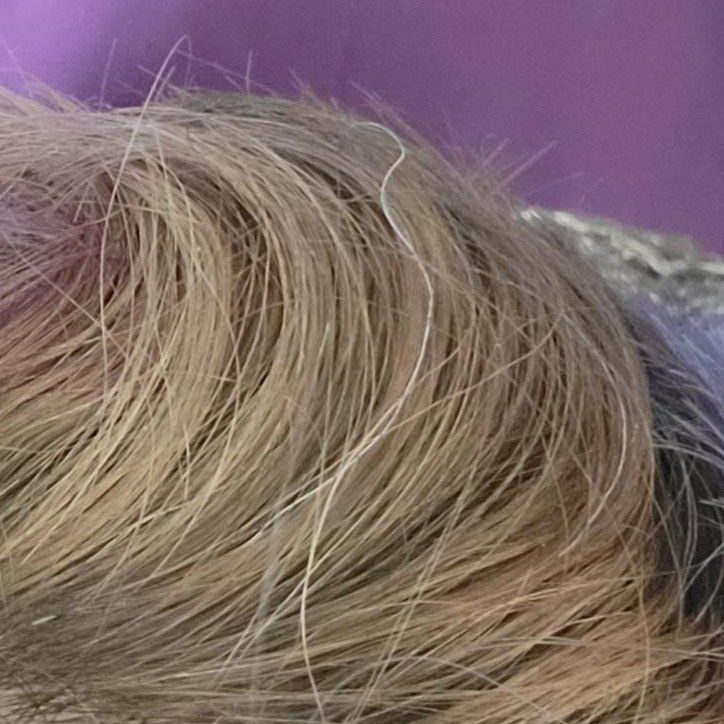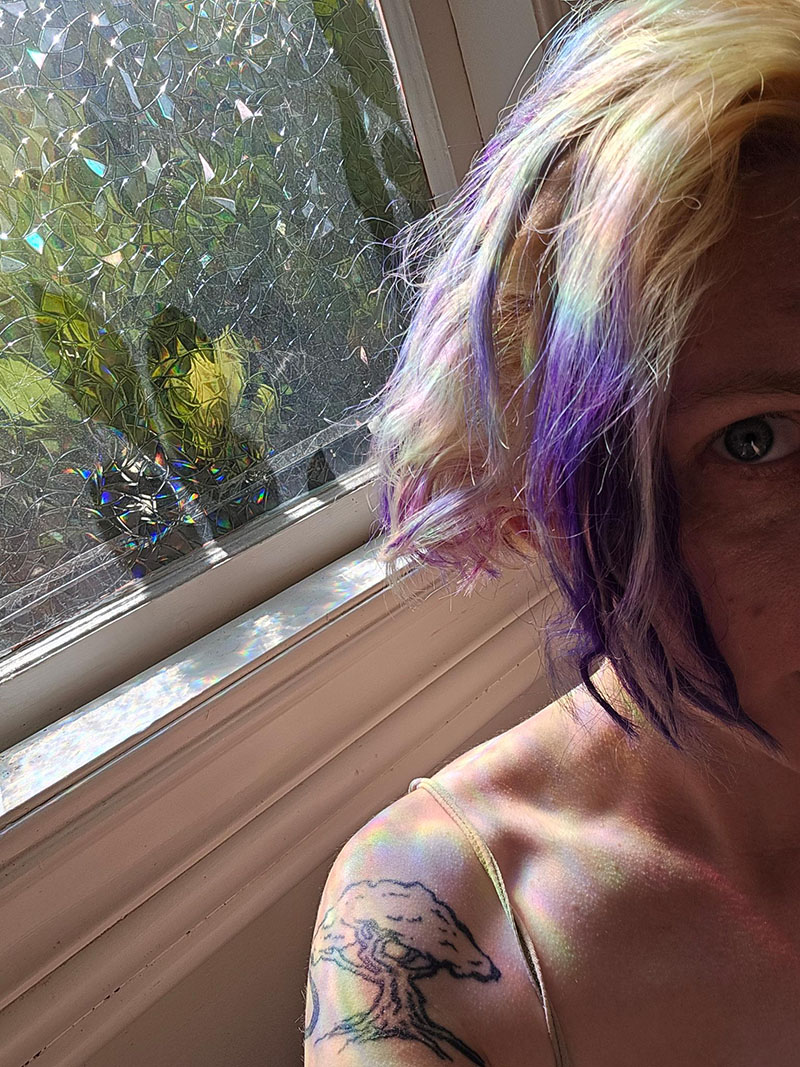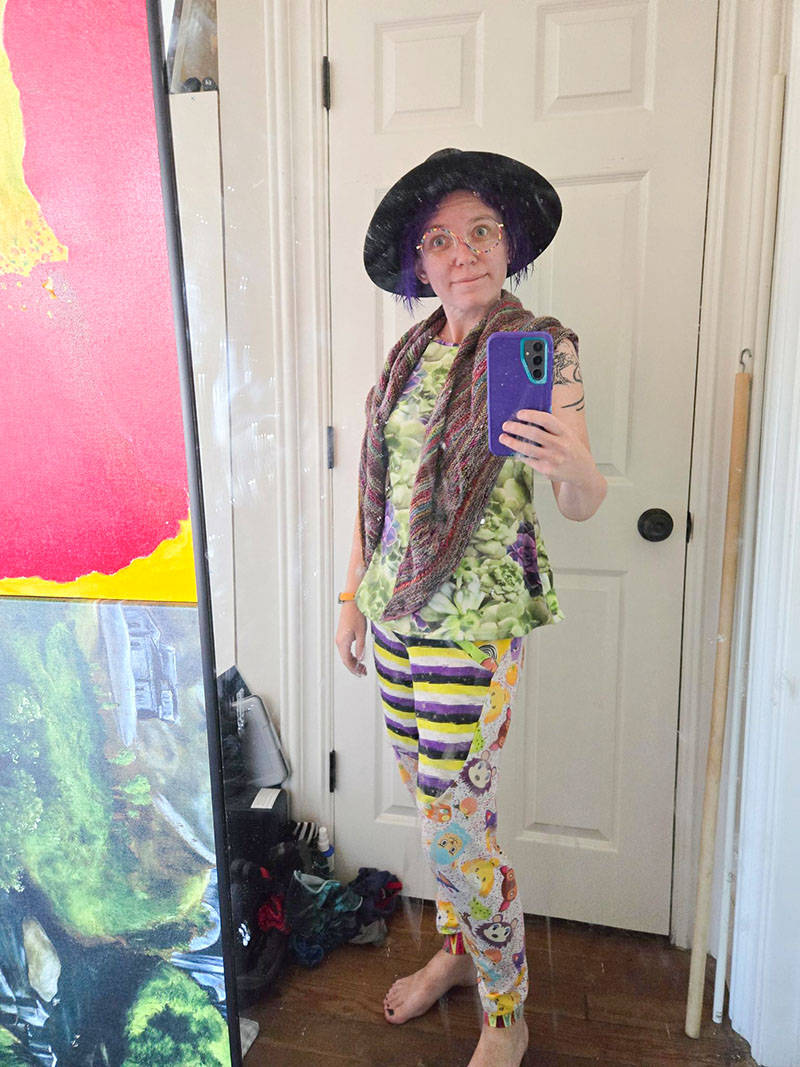Gray Hair
I found my first gray hair last Friday. At my age, it feels like an echo of puberty anxieties: who hasn't gotten their period yet? Several of my friends are fully and gloriously silver, but I found it curious that I hadn't noticed a single one during my regular hair dye as memorial ritual for Rebecca Munson.

But there it was, as I awkwardly tried to take a picture of the back of my hair after getting a haircut that'd sheared off most of the last round of purple and blue hair dye. And I was caught off guard by having feelings about all this.
This followed on the heels of a deeply personal conversation with another friend earlier in the week -- about love, yearning, wanting to shake off a kind of stability that had begun feeling more like a rut than something comforting. And it left me remembering again Matt Lincoln's memorial for Rebecca, "Dating when the world is on fire (and so are you)":
As we (as a society) fumble through the messy end of this pandemic, and pay ever closer attention to our existential climate crisis, Rebecca’s and my perennial subjects of what makes a worthwhile relationship stick in my mind. In our limited time, there is perhaps no more essential duty than to exert the constant effort needed to be open to each other, to the possibility of joy, hurt, and everything in between.
I spoke a little about this a few weeks ago for the Windsor Lecture at the UofI I-School, "What Happens After the End? Crafting Sustainable Librarianship in an Age of AI". The gap in time between having to come up with a title and abstract, and actually giving the talk meant it was student protests rather than AI at the front of my mind, but the core was still there: the way libraries are managed and run is often not humane or sustainable, neither for the people in charge nor those under their care. It's a story you hear everywhere: across so many research libraries, but also public libraries. What if we could be open to each other about what we need? How can we create empower people to create spaces with the possibility of joy, hurt, and everything in between -- for themselves within their work, and for parts of our community that we may not have been attending to? How do we get our institutions to set aside the corporate-consultant model of relating to staff, given the extensive wreckage it's caused time and time again, and consider other models? What if we tried cultivating a rhizomic network model of honest conversations about needs and desires, modeled after the discourse underpinning poly relationships?
As I repeated the hair dye ritual, this time spread over a night and the next day, it felt more than ever a positive affirmation, a deliberate choice in how to respond to the provocation of that gray hair. By still being here, long enough to accumulate gray hairs, I can take actions that make a difference: for others, to try to make structures I work in more humane, but also for myself.

There's space enough to want things, and even if it means a period of less stability, that itself can become a force for something beautiful. From the diaries of Anaïs Nin, 1944-1947:
The fullness is like a tidal wave which then carries you, sweeps you into experience and into writing. Permit yourself to flow and overflow, allow for the rise in temperature, all the expansions and intensifications. Something is always born of excess: great art was born of great terrors, great loneliness, great inhibitions, instabilities, and it always balances them... No withholding is possible... a dream given is no longer yours, but it is also true that the more dreams you give, the more you exercise the production of dreams to fill the void, and this faculty grows stronger as you make demands upon it. It is like love. The more yu spend of it, the more you stir new sources, new energies. To hold back is an activity which withers, inhibits, and ultimately kills the seeds.
Back to purple, back to work, back to living.
